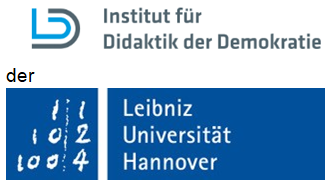What is Forced Germanization; Zwangsgermanisierung; II. WK; Second World War; Historisch-politische Bildung; Geschichtsbewusstsein; Historisch-Politisches Bewusstsein; Identität; Polnisch-Deutsche Geschichte; Nationalsozialismus; Geraubte Kinder; Exklusion; Historische Biographien about?
The MOOC is dealing with a historical topic that has received little attention for a long time: The ‘forced Germanization’ of children during World War II. Thousands of children were deported by the Nazis from the territories they occupied - especially Poland - to Nazi Germany. The course is an offer to deal with this ‘forgotten’ topic. It geographically focusses on Poland and Germany.
What do you learn in this course?
The course is designed for students of the humanities and social sciences, especially for future teachers. However, it is also open to everybody at any time.
Main Goals are:
- Imparting knowledge about the "forgotten" topic
- Promotion of a critical-reflective historical consciousness
- Raising awareness of forms of social exclusion in contemporary European societies in connection with identity
How is the course structured?
The MOOC is divided into 3 modules in addition to an introduction and a concluding chapter:
- the "forced Germanization" during the Second World War
- social and political handling of the topic in the post-war period in Poland and Germany
- social exclusion and identity in contemporary European societies
Each module is divided into lessons. Some of the lessons offer exercises. Exercises can be recognized by the blue symbol with the mouse. The course is structured chronologically. However, the user does not have to follow this structure. All chapters and lessons are available from the beginning.
Authors
Project-leadership:
Prof. Dr. Dirk Lange, Leibniz Universität Hannover (LUH)
Prof. Dr. Dirk Lange is Professor of Civic Education Didactics at Leibniz University Hannover and spokesperson of the Research Center Inclusive Citizenship. In 2002, he earned his doctorate on the didactics of everyday historical-political education. His research focuses on civic consciousness, political education research, teaching and learning processes, historical-political didactics, and migration-related education. In addition, he teaches internationally and has led adult education programs.
Project-management:
Jessica Burmester & Arne Schrader, Leibniz Universität Hannover (LUH)
Jessica Burmester-Kock, M.A. has been a research associate at the Institute for the Didactics of Democracy (IDD) at Leibniz University Hannover since January 2018. Holding a Bachelor’s degree in Political Science and History (University of Göttingen) and a Master’s degree in Political Science (Free University of Berlin), her research and teaching focus on historical-political education, memorial site pedagogy, Holocaust education, and the history of the European Union. She has also contributed to international workshops and projects on civic competences and Holocaust education.
Arne Schrader is a research associate at the Institute for the Didactics of Democracy (IDD) at Leibniz University Hannover. After completing an M.Ed. in German, History, and Politics, he earned his doctorate in the field of historical-political education. He participated in EU projects such as the MOOC “TEF” on forced Germanization. His research focuses on discrimination-critical political education, inclusive citizenship education, and digital media literacy.
Authors of content and responsible for research & development of exercises:
Lidia Mirowska
Paulina Adryańczyk-Linard
Magdalena Tomczak
Jessica Burmester
Arne Schrader


